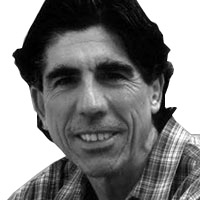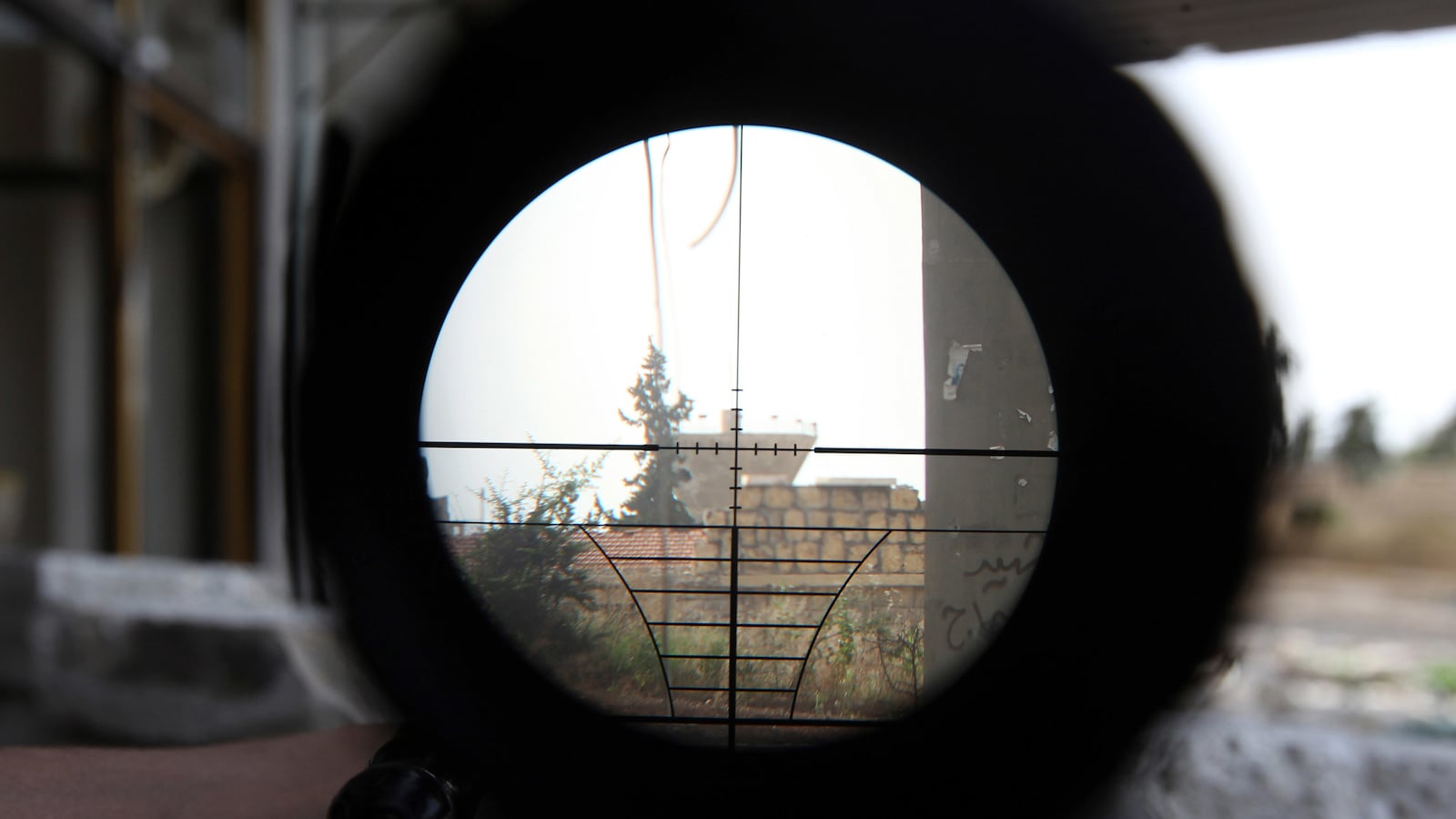When presidents Barack Obama and George W. Bush spoke at the memorial service for the five Dallas police officers killed by former Army veteran Micah Xavier Johnson, they were not just responding to another horrific mass murder. They were responding to a sniper attack that reflects an America dilemma.
We are ambivalent about snipers. We regard Micah Johnson as despicable for his murder of the police, but we honor Navy Seal Chris Kyle, the most lethal sniper in American history and the hero of Clint Eastwood’s film American Sniper, for his successful use of sniper tactics in Iraq.
When snipers protect us by defending the country, we approve of the way they operate. The Army established a sniper school at Fort Benning, Georgia, in 1987, and the Army Sniper Association website hails the sniper as an “invaluable asset” for the military.
On the other hand, when snipers threaten us, we decry their willingness to shoot from a concealed position and treat their human targets as prey. They seem worse than other killers.
Dallas Police Chief David Brown captured the anger so many of us feel for snipers like Micah Johnson when he told the media, “They don’t have to work very hard to do cowardly acts like this, to snipe at our officers from elevated positions and to ambush them from secreted positions around corners.”
In Johnson’s case his sniping was inseparable from the unstable person he had shown himself to be during his time in the service. While in the Army, Johnson was sent home from Afghanistan for sexually harassing a fellow soldier, who thought Johnson needed “mental help.” She feared him enough to ask for an order of protection for herself and her family.
Johnson’s profile parallels that of two other notorious Texas snipers. The most infamous of these, Lee Harvey Oswald, shot President John Kennedy from a window of the Texas School Book Depository on November 22, 1963. Thanks to the Warren Commission’s investigation into the death of Kennedy and the interest in Oswald from authors like Norman Mailer and Gerald Posner, we know much about Oswald’s history, starting with a childhood in which he moved from school to school and was temporarily put in an orphanage by his mother. An ex-Marine, Oswald later tried to become a Soviet citizen, and seven months before the Kennedy assassination, Oswald fired a bullet into the home of the outspoken, right-wing Army major general Edwin Walker, who was living in retirement in Dallas.
A similarly disturbing profile describes Charles Whitman, another ex-Marine, who in 1966 barricaded himself in the landmark tower of the University of Texas at Austin and shot 46 people, killing 14 of them before he was killed 90 minutes later. Whitman, like Oswald, had trouble holding down a job and being close to anyone. The night before his rampage, he murdered both his mother and his wife. Earlier in the year he told a psychiatrist that he was having outbursts of rage that he could not control.
The deaths of Johnson, Oswald, and Whitman produced little regret. There was widespread feeling that they got what they deserved. When the Dallas police used a bomb attached to a robot to kill Johnson, they were applauded for not taking further risks with their own lives.
The contempt we have for snipers like these is not the feeling we have for snipers we look upon as doing their patriotic duty. Chris Kyle’s autobiography was a bestseller and Clint Eastwood’s movie, which was based on Kyle’s autobiography, was a box-office smash.
Kyle’s story evokes the history of the sniper in America. As art curator Brian Allen recently noted, Kyle calls to mind a heroic figure from the 19th century: the sniper in artist Winslow Homer’s 1962 illustration for Harper’s Weekly: “The Army of the Potomac—A Sharp-Shooter on Picket Duty.” In both the illustration and painting, the sharp-shooter is concealed by the branches of the tree he sits in. Nonetheless, he is meant to be viewed with admiration by the readers of Harper’s Weekly. Homer’s sharp-shooter is a stalwart defender of the Union cause, and in this regard a warrior who further links us to the present and snipers who are presented as admirable.
On television, there is no more powerful representative of law and order than actor Mark Harmon’s character, Leroy Jethro Gibbs, the head of the Washington-based Major Case Response Team of the National Criminal Investigative Service on the long-running CBS series NCIS. A former Marine sniper, who once used his sniper skills to avenge the murder of his wife and daughter by a drug lord, Harmon is for us what John Wayne, who thrived on face-to-face confrontations in a series of classic westerns, was as a dispenser of justice for past generations.
Gibbs’s sniper past is portrayed on television as a virtue, not a liability, and he reflects what is going on in real life. Our current, sanctioned use of drone strikes in such troubled areas as Iraq and Afghanistan has raised the sniper’s tactics to a new high-tech level. Today’s drone operators do not even need to worry about camouflage. They can safely operate from an air-conditioned room on a military base thousands of miles from the battlefield.
And therein lies the dilemma of the sniper’s morality. We have not in the past thought of the sniper’s battlefield legacy as one that might be transferred to civilian life—let alone civilian life in which weapons designed for military use have become widely available. But that is exactly what has happened.
Nicolaus Mills is professor of American studies at Sarah Lawrence College and author of Winning the Peace: The Marshall Plan and America’s Coming of Age as a Superpower.






